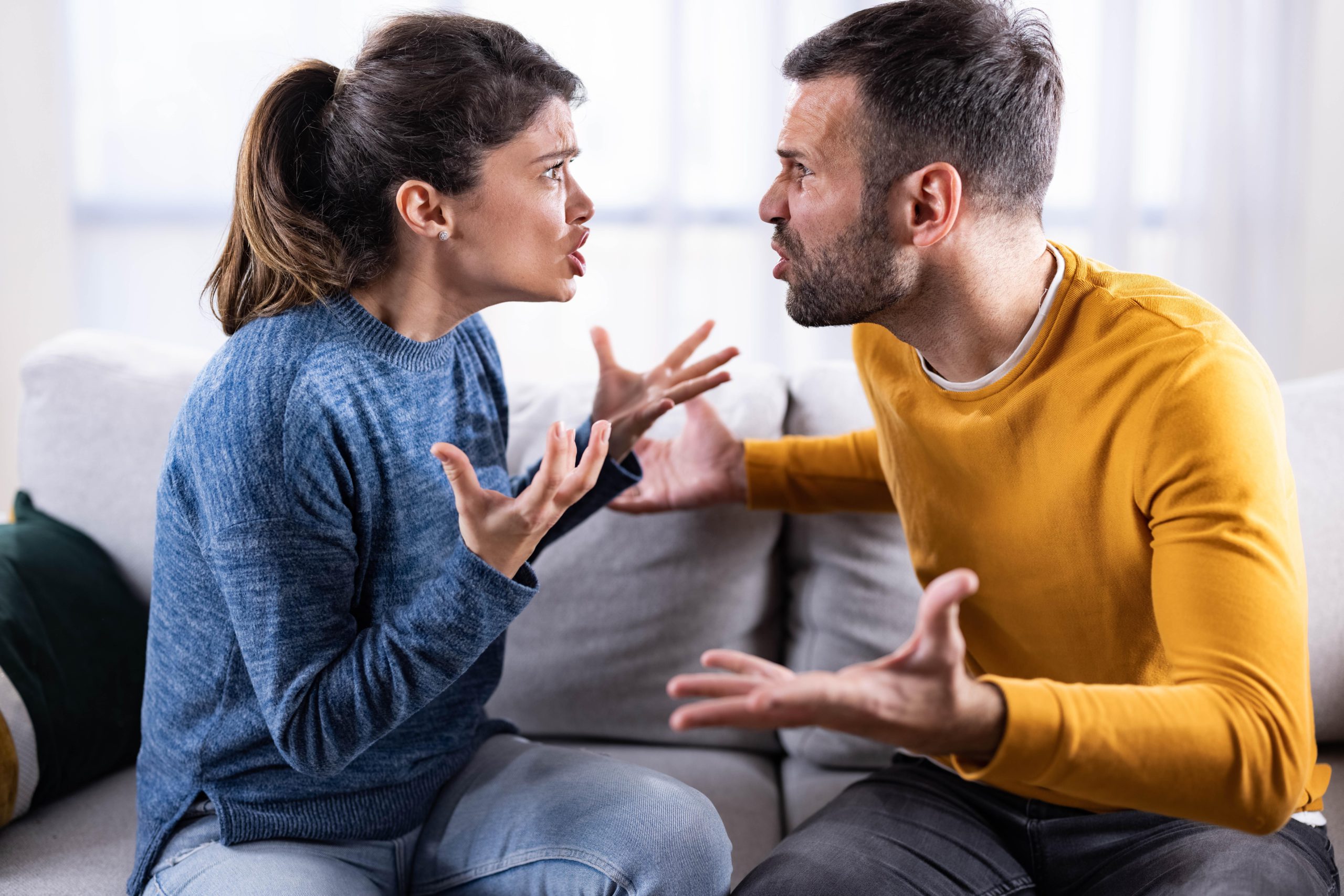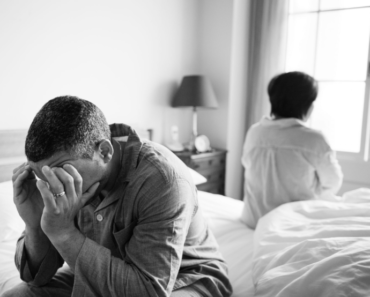Contents

Feeling lost and low after a breakup? Dive into our guide on How to get over breakup depression. We’ll equip you with effective strategies and techniques to overcome the emotional challenge so that you can face this difficult period and rediscover your strength and self-care.
How to Get over Breakup Depression: Mental Health Strategies to Move On
Relationship breakups can be incredibly difficult, and it’s normal to experience feelings of depression during this time. However, there are strategies you can implement to get over breakup depression, heal and move forward with your life.
1. Allow yourself to grieve: It’s important to acknowledge and process your emotions. Give yourself permission to feel sad, angry, or hurt. Allow yourself to cry and express your emotions in a healthy way.
2. Seek support: Reach out to friends, family, or a therapist who can provide the support and guidance you need. Talking about your feelings can help alleviate the burden and provide you with different perspectives.
3. Practice self-care: Take care of yourself physically, emotionally, and mentally. Engage in activities that bring you joy and relaxation. Prioritize sleep, exercise, and eating nutritious meals to ensure your well-being.
4. Challenge negative thoughts: Breakup depression often comes with intrusive negative thoughts. Challenge these thoughts by questioning their validity and replacing them with more positive and empowering ones.
5. Set boundaries: If staying in contact with your ex is causing further distress, it may be necessary to create boundaries or even cut off communication temporarily. Focus on your own healing and well-being.
6. Engage in healthy coping mechanisms: Find healthy ways to cope with your emotions, such as journaling, meditation, or engaging in hobbies. Avoid harmful coping mechanisms like excessive alcohol or drug use.
7. Take one day at a time: Healing takes time, so be patient with yourself. Focus on small victories each day and celebrate progress, no matter how small it may seem.
8. Consider professional help: If your breakup depression becomes overwhelming and affects your daily functioning, seeking professional help from a therapist or counselor specialized in mental health can be beneficial.
This breakup might feel like it’s knocked the wind out of you, and that’s okay. Healing takes time, and the most important thing right now is to be kind to yourself. We’ll walk you through some steps to prioritize your well-being and get back on your feet, one step at a time.
Understanding the Impact of Breakup Depression on Mental Health

Breakup depression can have a significant impact on our mental health. It’s totally normal to be sad, confused, and maybe even a little angry. It’s important to acknowledge the emotional turmoil and sadness that comes with the end of a relationship. We’ll explore how breakups mess with our mental well-being and emotions, but more importantly, we’ll offer some real-talk advice on how to pick yourself up and move forward.
Coping Mechanisms to Overcome Breakup Depression
Coping mechanisms are essential in overcoming breakup depression and rebuilding our mental health. We all know breakups can suck the joy out of life, leaving you feeling lost. But fear not! This section is your life raft filled with coping skills to help you navigate the emotional storm. We’re talking leaning on your awesome friends and family, treating yourself with kindness, even talking to a therapist, and finding positives, healthy distractions to keep your mind off your ex. Let’s rebuild your mental health, one step at a time!
Building Resilience and Moving Forward After a Breakup

Building resilience is crucial in recovering from breakup depression. Explores ways to foster resilience, such as reframing negative thoughts, setting goals, and developing healthy coping strategies. It is important of self-reflection, growth, and using the experience as an opportunity for personal development.
How can I cope with the feelings of depression after a breakup?
Breakups can be incredibly difficult and can trigger feelings of depression. It’s important to acknowledge and address these emotions in a healthy way. Here are some strategies that may help:
1. Allow yourself to grieve: It’s normal to feel sadness, anger, and loneliness after a breakup. Give yourself permission to experience these emotions and allow yourself to process them.
2. Seek support: Reach out to friends, family, or a therapist who can provide a listening ear and emotional support during this time. Having someone to talk to can help you feel less alone.
3. Practice self-care: Make sure to prioritize self-care activities that bring you joy and peace. This could include exercising, engaging in hobbies you love, spending time in nature, or practicing mindfulness and relaxation techniques.
4. Establish a routine: Having a daily routine can provide structure and stability, which can be especially helpful when dealing with depression. Try to create a schedule that includes regular sleep, healthy meals, exercise, and activities that make you feel good.
5. Avoid isolation: While it’s tempting to withdraw from others, try to stay connected with loved ones. Isolation can worsen feelings of depression, so make an effort to spend time with friends or join social activities that interest you.
6. Challenge negative thoughts: Depression often comes with negative self-talk and distorted thinking patterns. Practice recognizing negative thoughts and replacing them with more positive and realistic ones. Cognitive-behavioral therapy techniques can be helpful in this process.
7. Take care of your physical health: Remember to eat well, exercise regularly, and get enough sleep. Taking care of your body can play a significant role in improving your mental well-being.
8. Consider professional help: If feelings of depression persist or worsen, consider seeking professional help. A mental health professional can provide guidance, support, and specific strategies to help you navigate through this difficult time.
Healing after a breakup is like putting a broken vase back together – it takes time and a gentle touch. Don’t beat yourself up if you have good days and bad days. That’s totally normal! With some tender loving care for yourself and the support of awesome people around you, you’ll slowly but surely feel those cracks in your heart start to mend.
Breakup-related depression can be a challenging and overwhelming experience. Here are some effective strategies to overcome it:
1. Accept your emotions: Allow yourself to feel the pain, sadness, and grief associated with the breakup. It is normal to experience a range of emotions during this time.
2. Seek support: Reach out to friends, family, or a therapist who can provide a listening ear and emotional support. Joining support groups or online communities focused on breakup recovery can also be helpful.
3. Practice self-care: Focus on taking care of yourself physically, emotionally, and mentally. This includes getting enough sleep, eating nutritious meals, engaging in regular exercise, and practicing relaxation techniques such as meditation or deep breathing exercises.
4. Avoid isolation: Stay connected with your loved ones and engage in social activities. Surrounding yourself with people who care about you can help combat feelings of loneliness and sadness.
5. Set boundaries: If staying in contact with your ex-partner hinders your healing process, consider establishing clear boundaries or even cutting off communication temporarily.
6. Focus on personal growth: Use this opportunity to rediscover your passions, set new goals, and invest time in self-improvement. Engaging in hobbies, learning new skills, or pursuing interests can help shift your focus away from the breakup.
7. Challenge negative thoughts: Breakups often lead to self-doubt and negative self-talk. Practice self-compassion and challenge these negative thoughts by replacing them with positive affirmations and realistic perspectives.
8. Take it one day at a time: Healing takes time, so be patient with yourself. Celebrate small victories along the way and remind yourself that you are making progress, even if it may not always feel like it.
Hey, listen. Sometimes breakups hit you harder than you expect, and that’s okay. But if you feel like you’re drowning in sadness and can’t seem to catch your breath, there’s no shame in reaching out for help from a therapist. They’re like emotional lifeguards, trained to help you overcome depression. Don’t hesitate to grab that lifeline!
Are there any specific self-care practices or exercises that can help alleviate breakup-induced depression symptoms?
Breakup-induced depression can be a challenging experience, but there are several self-care practices and exercises that can help alleviate its symptoms. Here are some suggestions:
1. Practice self-compassion: Treat yourself with kindness and understanding during this difficult time. Remember that it’s okay to grieve and allow yourself to feel the emotions that come with a breakup.
2. Engage in physical activity: Exercise has been proven to boost mood and reduce symptoms of depression. Find an activity that you enjoy, such as jogging, yoga, or dancing, and incorporate it into your routine.
3. Connect with supportive friends and family: Reach out to loved ones who can provide emotional support and understanding. Talking about your feelings and having a strong support system can make a significant difference in your recovery.
4. Engage in activities that bring you joy: Participate in hobbies or activities that you find enjoyable and fulfilling. This could include reading, painting, playing music, or cooking. Focusing on activities that bring you happiness can improve your mood and distract you from negative thoughts.
5. Practice mindfulness and relaxation techniques: Engage in practices like meditation, deep breathing exercises, or progressive muscle relaxation. These techniques can help reduce stress, promote relaxation, and improve overall well-being.
6. Seek professional help: If you find that your symptoms persist or worsen over time, it’s important to seek help from a mental health professional. They can provide you with appropriate guidance, support, and potential treatment options.
There’s no single recipe for healing after a breakup. Each healing process is unique, so it’s essential to find what works best for you, but don’t forget that the most important thing is to be kind to yourself. This could mean movie marathons in your pajamas, long walks in nature, or finally tackling that novel you started years ago. Do what makes your soul feel lighter, step by step.
Seek professional help if needed and remember that you are not alone in this. You have the strength within you to overcome the pain and emerge even stronger. Stay resilient, keep moving forward, and embrace the new chapter of your life with hope and optimism. You deserve happiness and a healthy mental state, and you will achieve it.







